Dasu project cost surges to Rs1.7tr
Govt clears project despite 240% escalation, demands answers from WAPDA
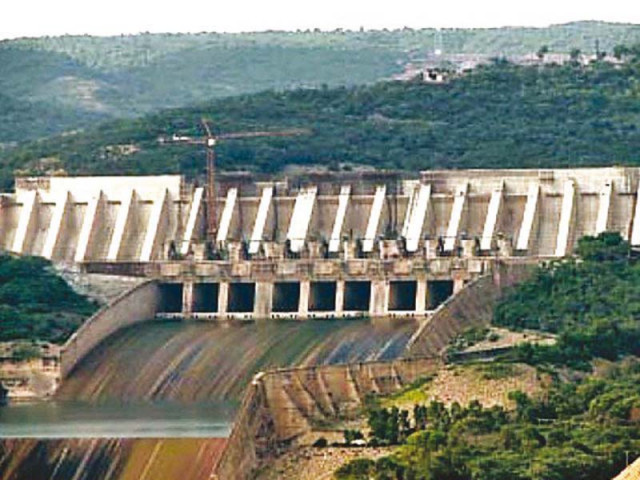
The government on Friday recommended the revised Dasu hydropower project for approval at a record-breaking cost of Rs1.7 trillion or $6.2 billion, making it the most expensive hydropower project in the nation's history and raising eyebrows over the "astronomical increase" of 240% in the cost.
With a massive jump of Rs1.3 trillion against the original price tag, the per-unit cost of the supposedly cheapest water-based power generation scheme now comes to Rs8.79. This makes it the most expensive hydro venture in the nation's history and requires further billions of dollars of fresh foreign borrowings to complete it.
The Central Development Working Party (CDWP), under the chairmanship of Minister for Planning Ahsan Iqbal, took up the "revised Dasu Hydropower Project (Stage-I)" worth Rs1.74 trillion and referred it to ECNEC "subject to WAPDA rationalising the costs and answering the queries," according to an announcement by the Ministry of Planning.
The minister "expressed serious concern on massive cost escalation from the original Rs479 billion to almost Rs1.73 trillion due to delays and mismanagement in the project," but still chose to send the scheme to the Executive Committee of the National Economic Council (ECNEC) for final approval with a few observations.
The planning ministry stated that Iqbal "directed third-party validation of the astronomical increase in the revised PC-I." The project had originally been approved at a cost of just Rs486 billion in 2014, with a per-megawatt cost of Rs236 million.
After the escalation, the per-megawatt cost comes to Rs804 million, compared with the Tarbela Fifth Hydropower Project's Rs148 million.
The PML-N government conditionally cleared the scheme for the final nod of the ECNEC, which will be chaired by Deputy Prime Minister Ishaq Dar.
The $6.2 billion cost of the project is now almost equal to the $6.7 billion cost of building a railway track from Karachi to Peshawar under the China-Pakistan Economic Corridor (CPEC).
Iqbal attributed the "substantial cost escalation to Rs1.73 trillion to mismanagement and delays and lack of progress during the previous government."
The minister "took notice of the fact that despite ECNEC directions to appoint an independent full-time project director for each project over Rs3 billion, WAPDA didn't appoint an independent project director for the Dasu project."
"It was also pointed out that there was no professional chief finance officer for the project," and yet the minister agreed to send the project to ECNEC. "The minister asked how WAPDA is running a project of this magnitude without a qualified and competent CFO," stated the planning ministry, but he still agreed to clear it.
"The minister was angry to learn that WAPDA had awarded a contract for the construction of a 66-kilometer Karakoram Highway section in foreign currency."
On his inquiry about why the road construction project was done in foreign currency, WAPDA couldn't give any satisfactory reply. He yet conditionally cleared the project subject to the condition that WAPDA will submit replies to his questions.
Iqbal called giving road project contracts in foreign currency "criminal negligence." It was also pointed out that WAPDA had made design changes and incurred expenditure without approval from CDWP and ECNEC. The minister sought an explanation from WAPDA, it added.
Iqbal emphasised the strategic importance of the Dasu hydropower project for Pakistan's water and food security.
The CDWP was told that in view of the expected increase in the cost of Stage-I of 2,160 MW, the government now needs more foreign and local loans. The forum was informed that WAPDA was in negotiations with the World Bank for a whopping $1 billion new loan. The $1 billion loan will be a mix of expensive and concessional loans. The World Bank has already given a $517 million loan for the project.
The government will also get a $400 million foreign commercial loan by using World Bank guarantees. It will also search for Rs350 billion in domestic commercial loans.
WAPDA will inject Rs289 billion as equity. Out of it, Rs191 billion will be used to finance the project cost and Rs98 billion, already paid by WAPDA against interest during construction. The rate of return against equity is taken as 10%.
The dam height will be 242 meters with roller-compacted concrete type, which has been recommended by the Panel of Experts, as well as the consultants. The powerhouse is located in an underground cavern on the left bank of the Indus River. The main development objective of the project is to improve the management and investment planning of water resources in the Indus River Basin. From 2013-14 onward, PC-I expenditures started, and up to 2023-24, a sum of Rs317 billion has been incurred.
The World Bank has been financing the construction of Stage-I, which also includes land acquisition, resettlement, and pre-construction activities.
Initially, Stage-I, having a capacity of 2,160 MW, was expected to come online in five years, but due to land acquisition issues and an increase in the scope of work, the project was not completed on the due date and had to be extended up to 2029.
The second revised PC-I has been prepared for updating the construction of Stage-I (2,160 MW) of Dasu HPP, including the cost of land acquisition, resettlement, and pre-construction activities such as the construction of the right bank access road from Komila to the Dasu Dam site, relocation of KKH, construction of the project O&M staff colony, and construction of a 132 kV transmission line from Dubair Khwar HPP to Dasu.
So far, the work on the main hydraulic structure, spillway, low-level outlets, river diversions, and hydraulic structures has been completed by 23.6%, and the estimated date of completion is 2028. The work on the underground power complex, tunnels, and hydraulic steel structures is only 15% complete.

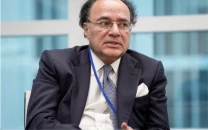
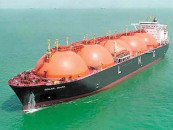


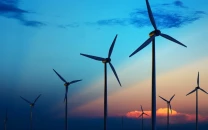

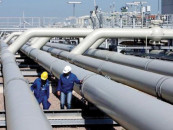












COMMENTS
Comments are moderated and generally will be posted if they are on-topic and not abusive.
For more information, please see our Comments FAQ